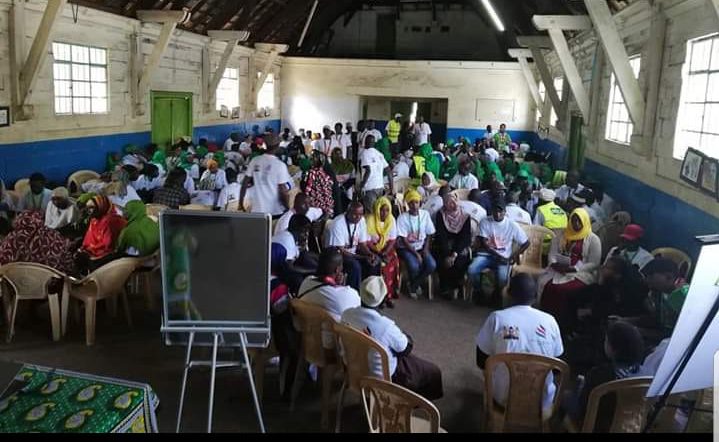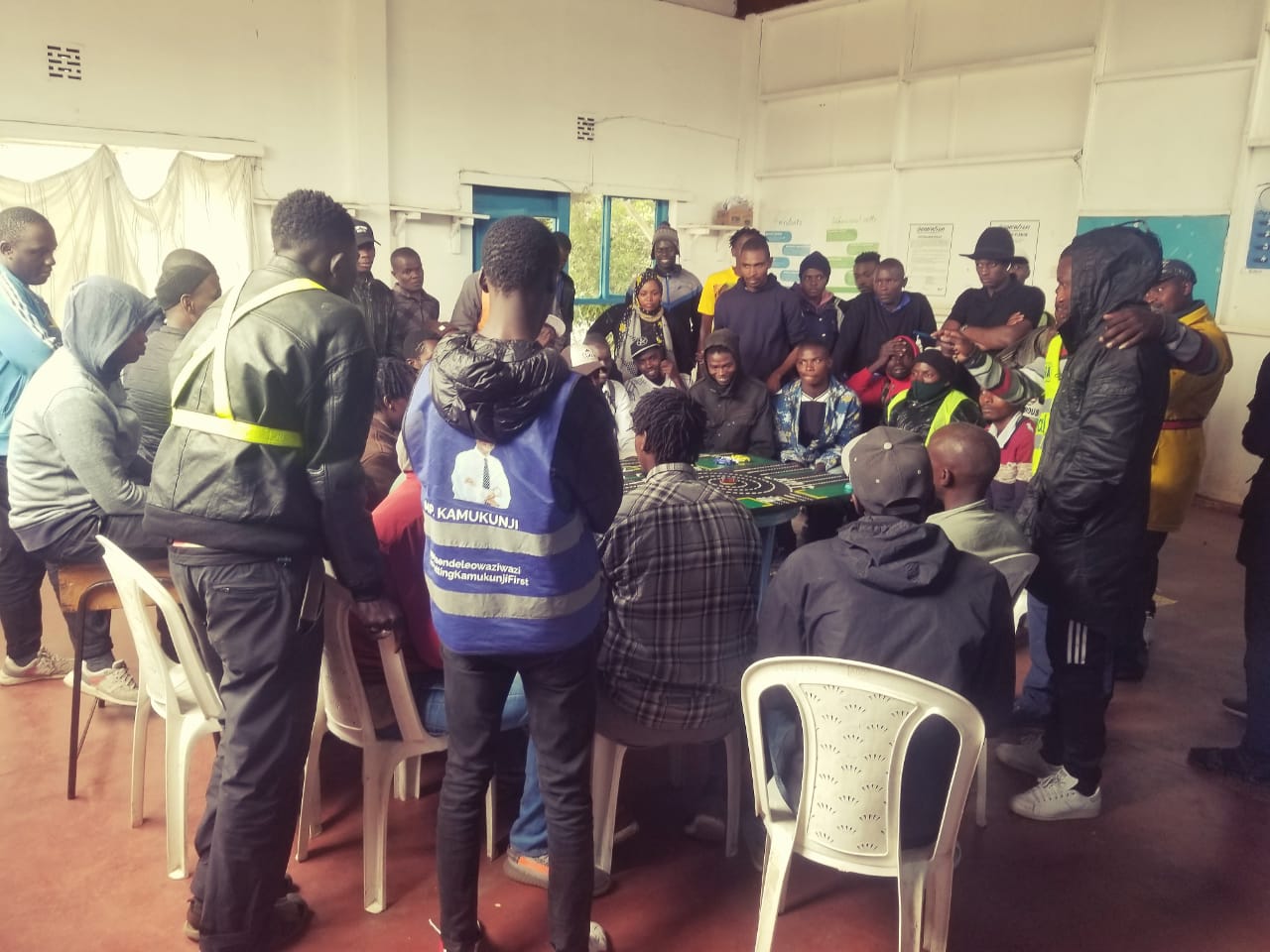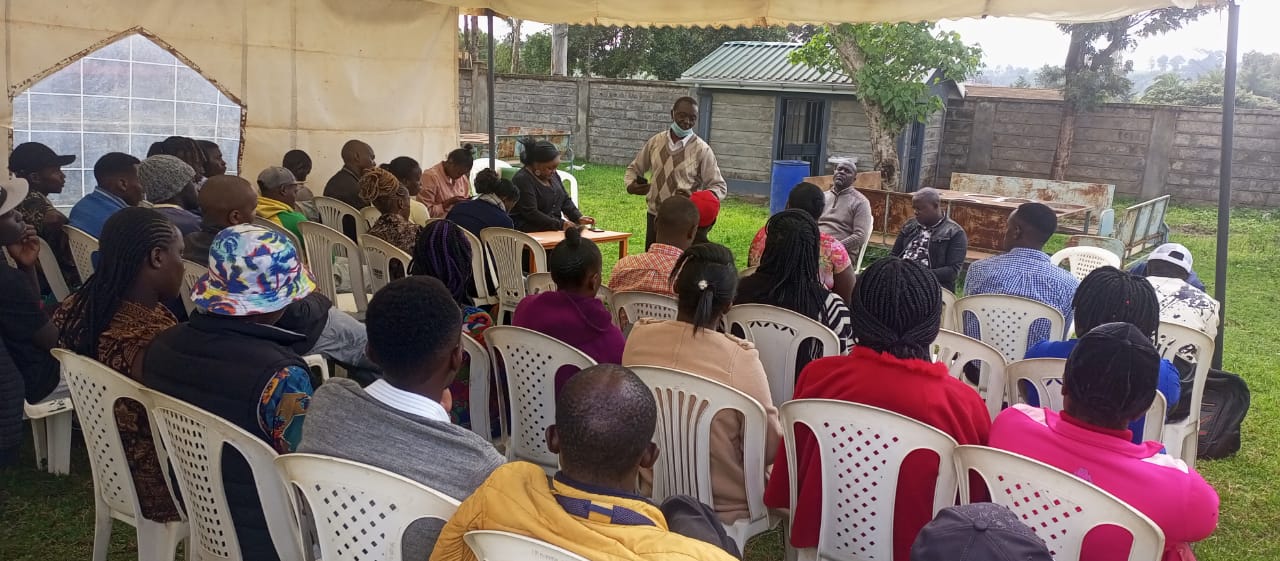As one of the top refugee-hosting countries on the continent comprising 475,865 refugees and 58,757 asylum-seekers, Kenya has large numbers of displaced people and asylum seekers majorly from the East African Region.
However, these refugees and asylum seekers face enormous challenges trying to get their lives back. According to Roads to Refugees, people who seek asylum and refuge face challenges that include – finding employment, language and communication barriers, community attitudes, the impact of disrupted education on schooling, financial difficulties, and visa insecurity (temporary visa holders).
For Dr. Reginald Nalugala who teaches Ph.D and Masters in Social Transformation at Tangaza University College (TUC), there is hope for the refugee communities through the DISH Certificate program.
The program is hosted under the Institute of Religious Dialogue and Islamic Studies (IRDIS) at Tangaza University College. The IRDIS team at TUC is very excited to be part of this project.
“We are very much delighted to be part of this program through the IRDIS. Through the institute, we can also be of service to the population of the people we are targeting. That will be of benefit to them and to us”, Innocent Maganya, IRDIS Director.

The DISH courses are aimed at youth and women who have been particularly impacted by unemployment and who struggle to access (further) education
“The targets are refugees. We have people from Eritrea and Tigray. The courses that can help refugees from the Horn of Africa”, said Dr. Nalugala
According to United Nations High Commission on Refugees (UNHCR), most refugees and asylum seekers in Kenya originate from Somalia (53%). Other major nationalities are South Sudanese (25%), Congolese (10%), and Ethiopians (5.6%).
“Almost half of the refugees in Kenya (43%) reside in Dadaab, 41% in Kakuma, and 16% in urban areas (mainly Nairobi), alongside 18,500 stateless persons”, UNHCR Report.
“There is enthusiasm among young people because nobody has come forward to give them a chance to learn a skill that can give them an opportunity”, Dr. Nalugala added.
Many of these refugees have made Kenya their home, especially Nairobi. The University of Oxford Refugees Study Centre revealed that many refugees have chosen “to live in Nairobi to gain better access to economic opportunities and social services, such as education and health”.
“In order to work in the formal sector, refugees must obtain a work permit. But these are rarely issued. This means refugees are largely excluded from formal labour markets and are heavily reliant on informal urban economies”

The aim of the DISH program in Kenya is to improve their chances of getting a work permit, creating a living, and becoming entrepreneurs within their communities. For the refugees, this is the first time an organization is interested in equipping them with industry-relevant skills.
These youths will be trained in Business Administration, Computer Science, Primary School Teaching, Life Skills, Community Health, Community and Customary Law, Mental Resilience, Peace and Conflict, and Peace Building. These courses increase the employability of youth and women because they link to key emerging sectors in employment and contribute to stability, peace, and resilience.
Other DISH partners are East Africa University and Eastern College in Somalia; the Sudanese Organization for Research and Development (SORD) in Sudan; Community Empowerment for Progress Organisation (CEPO) in South Sudan; Mekelle University, Aksum University, Admas University, Addis Ababa University, and Adwa Pan-African University in Ethiopia; Kampala International University in Uganda; and the NGO Action Africa Help International. Tilburg University in the Netherlands assists the partnership.

